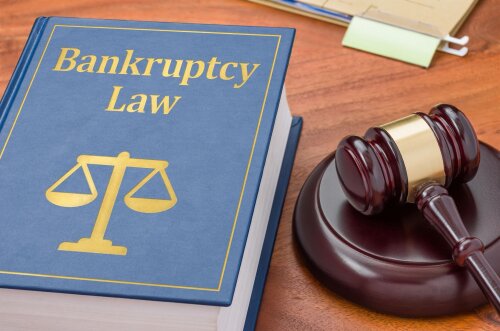Best Bankruptcy & Debt Lawyers in Alabama
Share your needs with us, get contacted by law firms.
Free. Takes 2 min.
Or refine your search by selecting a city:
List of the best lawyers in Alabama, United States
United States Bankruptcy & Debt Legal Articles
Browse our 2 legal articles about Bankruptcy & Debt in United States written by expert lawyers.
- Filing Chapter 7 in 2026 United States: New Income Limits
- Chapter 7 gives a near-total discharge of most unsecured debt, but you must pass a "means test" that compares your household income to your state's median income for your family size in 2026. The U.S. Trustee Program updates the state median income numbers at least once a year; you qualify... Read more →
- Debt Collectors in the US: Stop Harassment and Verify Debt
- You have strong federal rights under the Fair Debt Collection Practices Act (FDCPA) and CFPB Regulation F. Collectors cannot harass you, must send a validation notice, and must stop collecting until they verify if you dispute in writing within 30 days. Tell collectors to stop contacting you, then follow up... Read more →
About Bankruptcy & Debt Law in Alabama, United States
Bankruptcy and debt law in Alabama covers the legal processes and rights associated with managing overwhelming financial obligations. If you are unable to pay creditors, bankruptcy can provide relief or a new start. Alabama follows both federal bankruptcy laws and specific state exemptions, which outline what property you may keep and which debts can be dismissed. In addition to bankruptcy, debt law covers negotiation with creditors, debt collection practices, and protection from harassment or unfair collection efforts. Understanding your rights and options is crucial to making informed decisions about your financial future.
Why You May Need a Lawyer
Navigating bankruptcy and debt-related matters can be complex. Here are some common situations where you may benefit from professional legal assistance:
- You are facing foreclosure or repossession of property
- You have received frequent debt collection calls or threats of lawsuit
- Your wages are being garnished by creditors
- You are unsure which type of bankruptcy, if any, is right for your situation
- You want to ensure you keep as much of your property as possible under Alabama exemptions
- You need help negotiating a debt settlement or payment plan with creditors
- You are dealing with complex debts, such as tax obligations, student loans, or business debts
- You want to avoid mistakes that could cause your bankruptcy to be dismissed or delayed
A qualified attorney can explain your options, protect your rights, and guide you through each step of the legal process.
Local Laws Overview
Alabama residents must comply with both federal rules, under the United States Bankruptcy Code, and state-specific exemptions when filing for bankruptcy. Here are key aspects to consider:
- Chapter 7 and Chapter 13 Bankruptcy: Most individuals in Alabama file under either Chapter 7, which liquidates assets to pay debts, or Chapter 13, which sets up a repayment plan. Your eligibility depends on your income, assets, and specific circumstances.
- State Exemptions: Alabama law dictates which assets are protected during bankruptcy. Common exemptions include a modest amount of equity in your home, personal property, and some retirement accounts.
- Homestead Exemption: As of 2024, Alabama allows you to exempt up to $16,450 of equity in your principal residence. This amount can change, so double-check the current law.
- Wage Garnishment: Alabama permits wage garnishment for some debts but limits the amount that can be taken from your paycheck.
- Debt Collection: Alabama follows the federal Fair Debt Collection Practices Act, which protects you from harassment or unfair collection tactics.
- Marriage and Debts: Alabama is not a community property state, so most debts are considered the responsibility of the individual who signed for them, not their spouse.
Frequently Asked Questions
What types of bankruptcy are available in Alabama?
Most individuals file under Chapter 7 or Chapter 13. Chapter 7 is liquidation bankruptcy and requires qualifying based on your income. Chapter 13 reorganizes debts into a 3-to-5-year repayment plan for those with regular income.
Will I lose my home or car if I file for bankruptcy in Alabama?
Alabama's exemption laws may allow you to keep a certain amount of equity in your home or vehicle. In many cases, if your equity is below the exemption limit and you keep making payments, you can retain these assets. Always consult an attorney for your specific situation.
Can I discharge all my debts through bankruptcy?
Not all debts are dischargeable. Common debts like credit cards and medical bills may be wiped out, while child support, most student loans, and certain taxes are usually not eligible for discharge.
How does wage garnishment work in Alabama?
Creditors can obtain a court order to garnish a portion of your wages. Alabama law limits garnishment to 25 percent of your disposable earnings or the amount by which your weekly wages exceed thirty times the federal minimum hourly wage, whichever is less.
How long does bankruptcy stay on my credit report in Alabama?
A Chapter 7 bankruptcy will appear on your credit report for up to ten years, while a Chapter 13 bankruptcy typically remains for seven years from the filing date.
Can debt collectors call me at any time?
No. Both federal and state laws restrict the time and manner in which debt collectors can contact you. They must follow the Fair Debt Collection Practices Act, which generally prohibits calls before 8 a.m. or after 9 p.m.
What happens to my co-signers if I file bankruptcy?
Co-signers can still be responsible for the debt if you file Chapter 7. Chapter 13 includes a "co-debtor stay" which can temporarily protect the co-signer, but only while you remain in the repayment plan.
How do Alabama's exemptions differ from federal exemptions?
Alabama law requires you to use state exemptions rather than federal ones. These exemptions may be less generous, especially for property or home equity, compared to some other states.
What should I bring to my first meeting with a bankruptcy lawyer?
Bring a list of your debts, income sources, assets, recent tax returns, and paperwork about any legal actions or collections. The more information you provide, the better the attorney can advise you.
How much does it cost to file for bankruptcy in Alabama?
Court filing fees for Chapter 7 are usually about $338 and about $313 for Chapter 13. Attorney fees are additional and vary based on your case's complexity. Some legal aid organizations may offer help if you cannot afford a lawyer.
Additional Resources
If you need more information about bankruptcy and debt issues in Alabama, consider the following resources:
- Alabama Middle, Northern, and Southern District Bankruptcy Courts - For official forms and local procedures
- Alabama State Bar Association - Find information about lawyer referral services and legal aid
- Legal Services Alabama - Provides legal help for low-income individuals
- Federal Trade Commission (FTC) - Resources on debt collection and consumer rights
- National Foundation for Credit Counseling - Offers credit counseling and debt management programs
- Consumer Financial Protection Bureau (CFPB) - Guidance on dealing with debt and collectors
Next Steps
If you are facing financial hardship and considering bankruptcy or need help with debt in Alabama, taking the right steps is crucial. Here is what you should do:
- Gather all relevant financial documents, including debt statements, income information, and recent tax returns
- Consider reaching out to a qualified bankruptcy attorney for a case evaluation
- Ask about payment plans or legal aid if you are worried about legal costs
- Stay organized and avoid making large financial decisions before consulting a lawyer
- Educate yourself about your rights, options, and the specific laws that apply to your case
A legal professional can help you understand your best options under Alabama and federal law, minimizing potential pitfalls and stress as you work toward financial recovery.
Lawzana helps you find the best lawyers and law firms in Alabama through a curated and pre-screened list of qualified legal professionals. Our platform offers rankings and detailed profiles of attorneys and law firms, allowing you to compare based on practice areas, including Bankruptcy & Debt, experience, and client feedback.
Each profile includes a description of the firm's areas of practice, client reviews, team members and partners, year of establishment, spoken languages, office locations, contact information, social media presence, and any published articles or resources. Most firms on our platform speak English and are experienced in both local and international legal matters.
Get a quote from top-rated law firms in Alabama, United States — quickly, securely, and without unnecessary hassle.
Disclaimer:
The information provided on this page is for general informational purposes only and does not constitute legal advice. While we strive to ensure the accuracy and relevance of the content, legal information may change over time, and interpretations of the law can vary. You should always consult with a qualified legal professional for advice specific to your situation.
We disclaim all liability for actions taken or not taken based on the content of this page. If you believe any information is incorrect or outdated, please contact us, and we will review and update it where appropriate.
Browse bankruptcy & debt law firms by service in Alabama, United States
Alabama, United States Attorneys in related practice areas.
Browse bankruptcy & debt law firms by city in Alabama
Refine your search by selecting a city.














